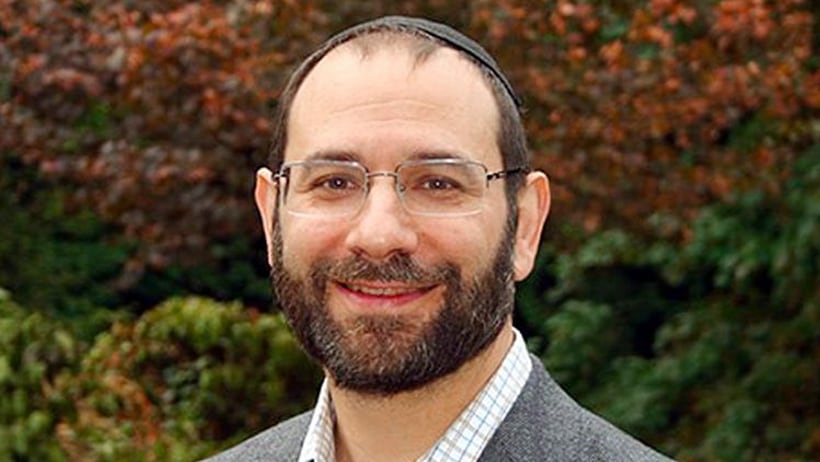Oasis Songs: Musings from Rav D
Friday, September 24, 2021 / 18 Tishrei 5782
Summary: How can we strengthen some of the commitments we made during the High Holiday season? Why do some of our resolutions unravel? This week, an old picture reminded me of how fragile our lives can be and how easily we can cause others pain or be injured by others. What if there was something we could do to quickly prevent those slights from taking hold?
Reading Time: 3 minutes
Remembering the Spider Man
dedicated to the memory of Will Knight
It is late September. While Simchat Torah is upon us, the larger thrust of the Jewish High Holiday cycle is behind us, and with it there is a risk that all the energy and spiritual insights we gained can be forgotten. Nonetheless, we all feel how essential it is to recharge, refocus, and recommit–and not just during the High Holidays. If not, we may find ourselves spinning in place and rehashing what was.

That image of spinning has a certain resonance for me. Our first autumn in Oregon was when I first became aware of spider season. Sure, spiders are everywhere, but I never tracked their lifecycle. Walking though one-too-many webs in the back yard that first September caught my full attention.
This memory resurfaced because my sister has been busy packing up my mother’s house and sending my brother and me care packages filled with all sorts of items, including old photographs and letters.
One of these was a picture taken from a vacation in Vermont during the summer of 2010. In the small town of Williamstown, we visited the world’s only spider web farm, where a Brooklyn émigré, Will Knight, carefully “harvested” the webs by transferring them to wooden plaques. The picture brought back to mind an otherwise forgotten experience, during which my then-young boys and I gained an appreciation of how perfectly a spider can plan and execute its web. We also saw how small external events–a gust of wind, a loose leaf, or a boy’s prying fingers–can disturb one of nature’s small miracles, leaving a scarred and unattractive web. The more industrious spiders hastened to repair their webs as best they could, while others let the very source of their well-being languish to their own detriment.
Like a fragile spider’s web, it is impossible to live isolated from the vicissitudes of life; we all hurt and are hurt by others. Regardless of the number of our relationships, we are familiar with the sting of disappointment that we experience or cause others. The question is whether and how long we choose to carry those disappointments around with us.
Each Yom Kippur, and indeed each morning, our tradition teaches us that our souls are renewed and restored. Many days, small and large events occur, which can disturb our God-given sense of shleimut–of our psycho-spiritual wholeness. Like those diligent spiders, Judaism offers techniques to repair these daily slights and thus keep the gains of the holidays with us throughout the year. One that I find particularly profound introduces the recitation of the bedtime shema.
…הריני מוחל לכל מי שהכעיס והקניט אותי
I forgive all who angered or slighted me, or who sinned against me, whether against my body or my money, against my honor or any other way, whether they were coerced or did so of their own free will, and whether they did it intentionally or accidentally…. May no one be punished on my account…and may I myself also not injure others….
On Yom Kippur, we read that our scarlet sins are turned white as snow. Each night, we can do the same for others and for ourselves. The alternative is to carry around grudges that ultimately hurt us more than the people who slighted us. I invite you to incorporate the above kavannah, or intention, into your bedtime rituals. It is one strand in the web of wellness we can spin for ourselves, another spoke we can make true. Let’s not neglect it.
Warmly,
Rav D
Shabbat Table Talk
- What metaphorical webs have you gotten tangled up in this year? How did you walk into the web?
- Can you think of difficult webs you have extricated yourself from? What made it possible to do so?
- Thinking positively, are there webs you would like to weave that would capture positive memories, experiences, and motivations? Phrased more directly, what series of habits can you build to make that more likely to occur?
If you’d like to continue this discussion, follow this link to CNS’s Facebook page to share your own perspectives on the topics raised in this week’s Oasis Songs. Comments will be moderated as necessary.



